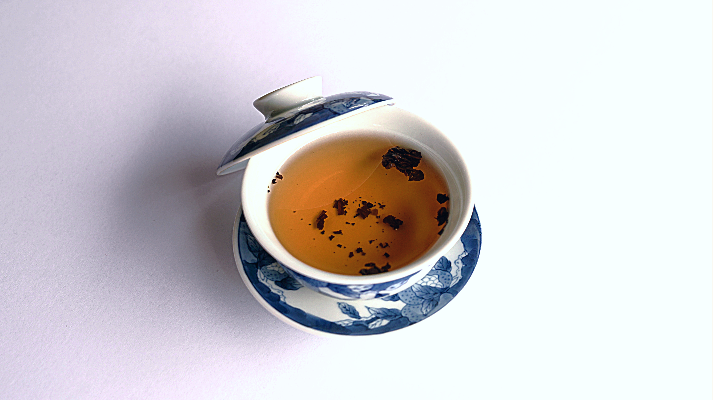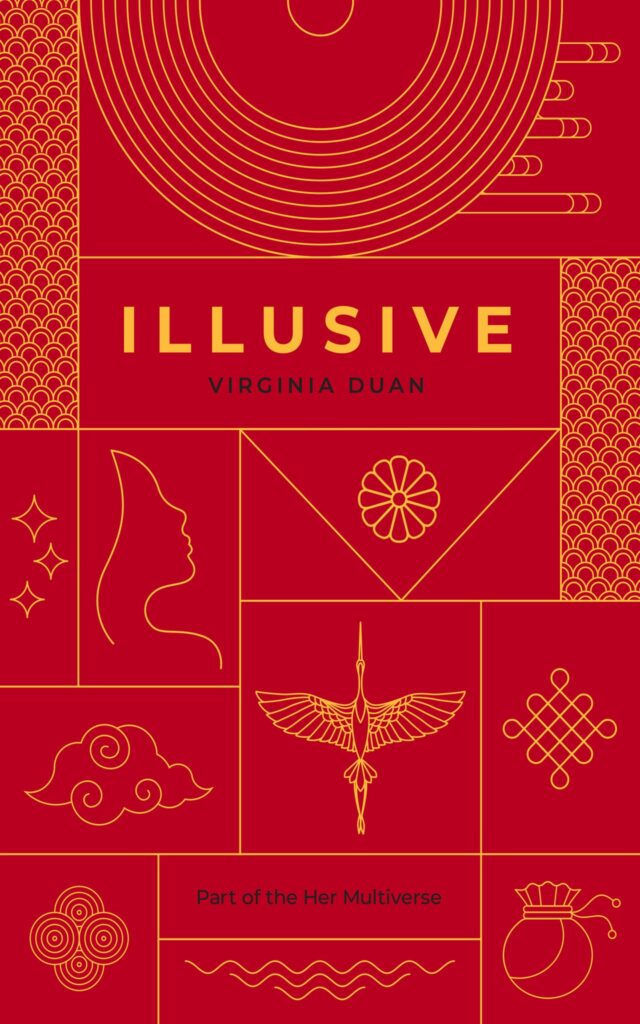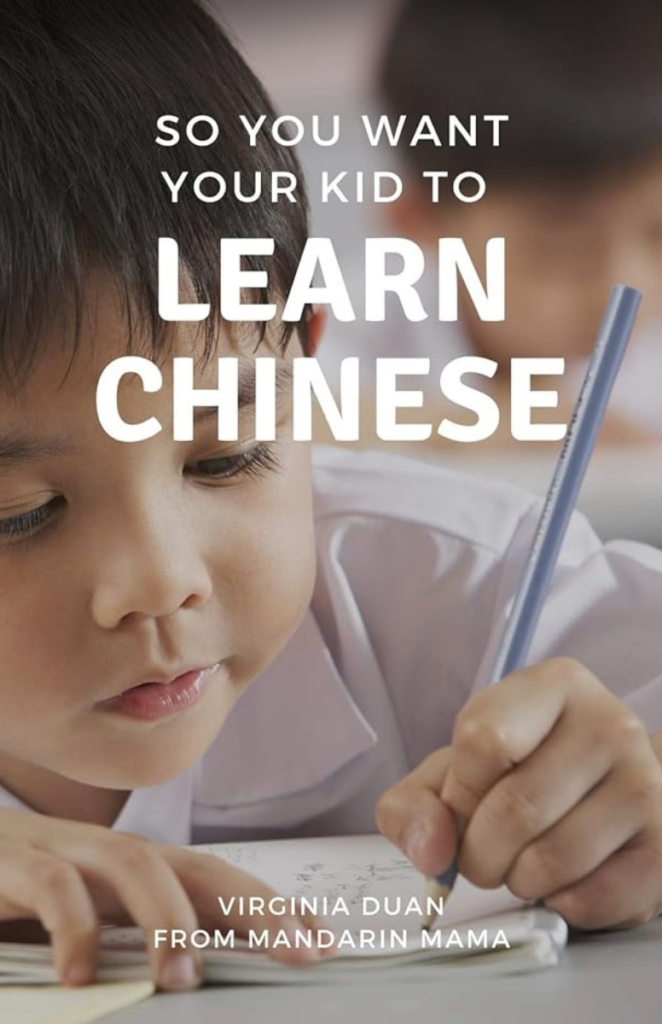This post includes affiliate links.
First of all, if you’re a potential sponsor, please ignore this entire article. For the right product and right price, I will make a comeback and jump through a few minor hoops. I still admin a Facebook group of 14.7k members where we discuss raising kids bilingual in Chinese and English. I have an 8-month-old and an almost 7-year-old child who can still benefit from your products. I also have three older children (13, 12, and 10) who are really good at Chinese, too. I’m particularly interested in products catering to advanced heritage Chinese learners.
Most importantly: they are all extremely photogenic. (So am I.)
With that obligatory disclaimer out of the way, why have I mostly stopped blogging about teaching my kids Chinese?
How it started
When I started writing around ten years ago about my experience, it wasn’t with the ends of writing a book or being recognized on the streets of Taipei (though both happened). Back then, it was me, Oliver Tu, Guavarama, Fortune Cookie Mom, CHALK Academy, and a few other folks writing about our experiences teaching our kids Chinese.
Oliver and Guavarama were more pedagogy oriented whereas Fortune Cookie Mom and CHALK Academy focused more on amazing crafts and worksheets. As for me, I mostly complained (which has its uses!). And though we were very different, we were all of the Chinese diaspora trying to teach our children Chinese as a minority language when most of the people “leading” the discussion about Chinese immersion or teaching kids Chinese were white.
I found it galling and disturbing how my heritage language had been (and still is) commodified and repackaged as important only in relation to its usefulness to white people trying to give their children a leg up in this increasingly global world. (Well, global for white people, anyway. Immigrant worlds have always been global in scale.) As important as greater buy-in for learning Chinese from non-Chinese people is in terms of scale, demand, and resources, the experiences of heritage speakers in a country hostile to POC is and remains extremely different.
I wanted to tell my story as an American Born Taiwanese now trying to teach my multi-ethnic children the language of my ancestors even while my own Mandarin was imperfect. I wanted my children to be bilingual and biliterate even while trying to break the cycles of trauma revolving around learning Chinese.
I wrote because there were so few of us telling our stories.
I wrote because I felt alone and isolated.
I wrote because that’s what I do.
Why I stopped writing about teaching Chinese
Now, however, I am reluctant to write about Chinese anymore. The reasons why I chose to walk away range from the wildly mundane to the deeply rage-inducing. Here are a few:
1) I don’t want to talk about Chinese anymore
At some point, that’s all people wanted to talk about with me. If I could only have one topic of conversation for the rest of my life, trust me: it would not be about Chinese. (It would be about BTS, of course.)
I was bored. I wanted to talk about so many other things, but people really only came to me to read about Chinese topics, and while that was understandable, it was also frustrating and limiting.
Some people one-trick pony really well. I do not.
2) I hate reviewing products, books, and curriculum
No, seriously. I really do. (However, for the right product and price, I and my incredibly good-looking children are available.) I’m so grateful other bloggers have come along to review books, recommend curriculum, try bilingual toys, etc. Seriously. They’re so much better at it and they seem to enjoy it.
3) It’s not fun anymore
Whoever said if you do what you love then you never work a day of your life is a liar. Writing about teaching my kids Chinese was a ton of labor — and I did it for free. Did I get paid occasionally? Sure. But overwhelmingly, it was for free. At some point (maybe two children ago), writing about this topic became work.
I hate work.
4) There are so many qualified resources out there now
Similarly, more voices have been added to mine and my colleagues. Many of them have small children and have the energy and passion I no longer have. I’m pleased to see a wealth of resources and knowledge being shared for us and by us.
5) I’m in the maintenance stage
Because my children are much older, I’m no longer in a pioneering stage with this Chinese fluency journey. I’ve already found what worked and continues working. I’m not looking to reinvent the wheel because I’m tired. Of course, some of the methods that worked with my oldest kids are either not available now (or not replicable — thanks pandemic), so I am open to some new things.
However, I know the “formula” for my dual fluency and literacy goals. Consistency, consistency, consistency. It’s no more difficult (and easy) than that.
6) I really don’t care about your kids’ Chinese levels
No, seriously. I don’t. Unless we’re friends, I really don’t want to talk about your kids. Unless we’re actually complaining about how difficult it is to teach our children Chinese and have them not fight us tooth and nail about it, I don’t want to hear it. And yes, I mean actual commiserating, not some trumped up humble-bragging.
7) I especially don’t care if you’re a white parent
Chances are, you have a misguided and entirely incorrect assessment of your white child’s fluency and literacy. Thanks to Chinese people simultaneously fawning over whiteness and their incredibly low expectations of white people, any Chinese abilities will be lauded and supported and praised.
For children of Chinese descent, however, the reaction is totally different. We’re shunned or looked at in public as if we’re foreign. We’re told to go back to where we came from. We’re told that our kids’ Chinese is terrible (even if it’s perfect). Our children are expected to be fluent and literate in Chinese (by native Chinese people and white people) even though they live in America, are American, and have never lived anywhere else. Our kids will face peer pressure, internalized and external racism, the need to assimilate, and identity issues their white counterparts will never experience. We are damned if we do and damned if we don’t.
It’s like when men take the kids to the park one time and everyone gushes about how good a father they are when the mom literally does everything and these same people tell her she’s a bad mother because she’s not living up to some white supremacist, patriarchal, misogynistic view of motherhood.
It’s a different game altogether (and not one rigged in our favor).
8) I’m tired of dealing with non-heritage speakers making it about them
If you think this section is about you, it probably is. If it doesn’t apply to you, then don’t worry about it.
Granted, this is merely a side-effect of living in American society, where white people think people of color and our foods, traditions, slang, music, and culture are ripe for the taking. I cannot tell you how many times white people treat my language and heritage — not to mention my children — as nice resume padders and optional enrichment for their white kids.
I see so much entitlement, self-insertion, self-centering, and self-aggrandizing among white parents that sometimes, just seeing certain people’s names causes my blood pressure to spike. (To be fair, this is not a flaw unique to white folks. However, at least in the case of POC, there is usually some awareness or solidarity in our desires to preserve our heritage.)
The audacity for white folks to go into our safe spaces and forums, benefit from our knowledge and lived experiences, and then have the temerity to complain that our hard-won wisdom and advice — our fucking grief and love and pain — does not center their experience. Worse yet, they often claim expertise (which they derived from consuming our labor) and lecture the Chinese diaspora on how they should just try harder, make it “fun” for their kids, and use other people of color for their own language gains.
My favorite part is when Chinese people desperate for white adjacency then treat these vultures as some sort of paragon while they undercut the Chinese and Taiwanese diaspora who have actual lived experience with the complexities of heritage language learning and retention.
No thanks. Hard pass. Immediate block.
Hey, that’s racist!
No. No, it’s not.
If you cannot understand or comprehend that some things are not for you, that people of color do not appreciate being used, and that you’re not my audience, then that is your problem (and the problem is you).
How can you support me?
And there you have it, friends. The tea on why I’m no longer doing the Chinese thing much with this site anymore.
You might be thinking, Wait! You are the voice of a generation, and I miss you!
I know. I get it. You’re obsessed with me, and I approve.
You can support me by buying my book, subscribing to my newsletter, following me on my socials, and sharing my posts and articles (look around my site and see if there are old articles that may still resonate with you).






